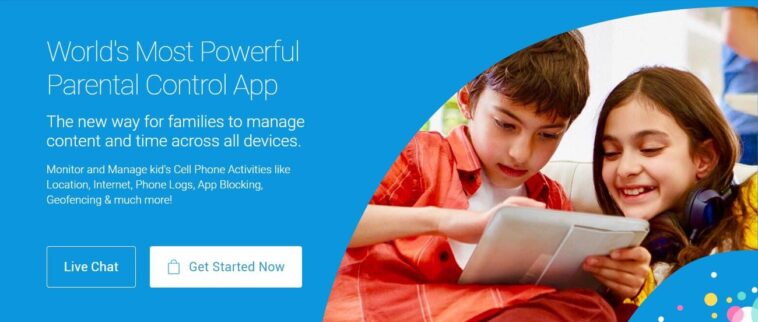As your child gets older, as a parent, you have less and less influence on the friendships they maintain. While friends still regularly visit kids at home during primary school, adolescents often have contact with their peers outside the home. As a parent, you have less insight into this. Do you suspect that your adolescent is dealing with ‘wrong friends’, or do you not have such a good feeling about a certain contact of your child? Then these tips can help you to keep the influence of ‘wrong friends’ as low as possible. Read on and make use of these tips.
1. Monitor and be sure!
The first step is to confirm whether your ideas are real or just a feeling. To do that, you are supposed to keep a close eye on your kids’ behavior and their communication. Well, observing the behavior is totally your thing. However, to monitor their conversations from a distance, you can take the assistance of parental monitoring app like FamilyTime. The app allows parents to check the contact book of their kids, see their call logs, read their SMS history, and, nonetheless, Watchlist suspicious contacts to receive alerts whenever their kids connect with the Watch listed contact. Not only that, with the parental monitoring app, parents can see the apps their kids use, the number of hours they spend on these apps, the sites they use, the time they spend on each site, and more. Once all the monitoring is done, the monitoring app allows parents to take the needed controls, and for this, there are features available such as App blocking, internet filtering, and screen locks, etc.

2. Don’t ban!
Many parents who have the impression that their child is associating with a ‘wrong friend’ will immediately be inclined to forbid that friendship. The advice is: don’t do that! Teenagers like to rebel against their parents. If you forbid contact, the chances are that your child will look it up. Because of the ban, this must then be done secretly. This makes contact extra exciting and interesting for your teenager. Because of the prohibition, your child will also no longer tell you what it is going through with that friend in question so you, as a parent, no longer have any insight into what is happening. And you, therefore, cannot adjust or intervene if necessary. Consider checking out online sources like the Motherhood Community page to learn more parenting tips.
3. Give it a chance…
As a parent, you can be too quick in your judgment about a certain contact of your child out of concern. Dare to give your adolescent’s new friendships a chance. Ask your child to take that friend home once. This allows you to get to know him/her a little better. Perhaps you will experience that it is not so bad? Or after a while, you see that your own child can deal very well with the malicious behavior of that friend and does not agree with it.

4. Stay involved
Instead of forbidding your child from contracting a particular friend, it is much wiser to invest in good contact with your child. Although adolescents may give the impression that they want to do it all themselves, they usually enjoy experiencing that their parents are involved in what they do. Children who have good contact with their parents are generally less inclined to dismiss themselves. They are also more willing to take the norms and values of the parents into account. This can help you to better resist negative influences from friends.
5. Show interest
By showing interest in all of your child’s friendships, including those that you are less happy with, your child will get the feeling that that friend also gets a fair chance. This prevents your child – because you are negative – from wanting to see only the positive sides of that particular friend. If only to “prove” that you were wrong! So try to be open about it. Give your child the space to name the disadvantages of that friend himself, without directly judging it. This will help your child to come to a conclusion himself sooner that the friendship is actually not that nice or equivalent.

6. Give confidence
When you apply the previous tips, you will give your child the feeling that you have confidence in the choices they make in forming friendships. Let your child know that you trust them to make wise choices within those friendships and that they can always come to you to discuss things. This puts the responsibility on your child, stimulates the feeling of self-confidence, and opens the door to share any negative experiences or doubts.
7. Look for alternatives together
Does your child have few social contacts besides that ‘wrong friend’? Then it may be that your child (unconsciously) chooses to keep this friendship because at least it has a ‘friend.’ By looking for other opportunities to get in touch with peers (for example at a sports club or association) with your child, your child can make new friendships. As a result, they may need that one wrong friendless.

8. Set boundaries and seek help if necessary!
Does your adolescent show undesirable behavior under the influence of friends? For example, is there vandalism or absenteeism from school? Then, of course, you, as a parent, have to set limits. Start a conversation about this undesirable behavior and mainly talk about the behavior of your child. Try to pay as little attention as possible to the influence of the friend (s) in question.
Does your child use those friends as an excuse (‘yes, but Roberto made it up’)? Then point out to your adolescent that he is always responsible for its own behavior! Does your child keep repeating, and do you have the feeling that you are increasingly losing control of your child? Then share your concerns with a professional—for example, the mentor at school or the doctor.





